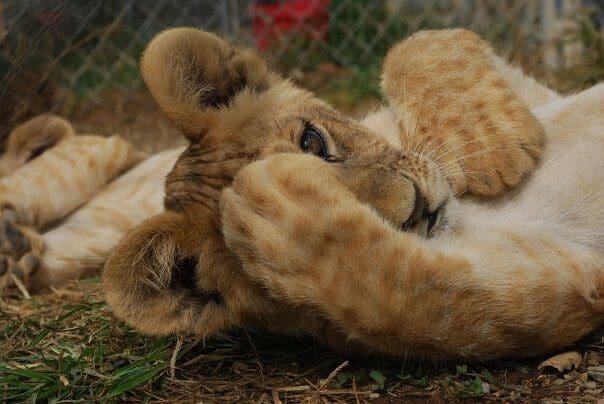
Many of us are quite inclined towards wildlife. There have been a number of times where we have ‘awwed’ a particular picture of a kitten or a puppy, or, unbelievably, a tiger cub as well. Now, it’s rather vain to deny the small, tingling desire that your mind sings of holding those cute little children in your arms and petting them while looking at those pictures. This desire is quite an innocent one, and may lead to a question: why is it so bad? After all, cub petting means providing love and affection, right?
Well, the answer to this is a big, fat ‘No.’
The price of cub petting:
Okay, so let’s be clear of one thing. The deceptive veil of prejudice of cub petting being a means of so-called ‘Conservation’ is exactly that. A deception. It dilutes the impact of true conservation efforts, and most often preys on the public and their affection towards baby animals, making a business out of it.
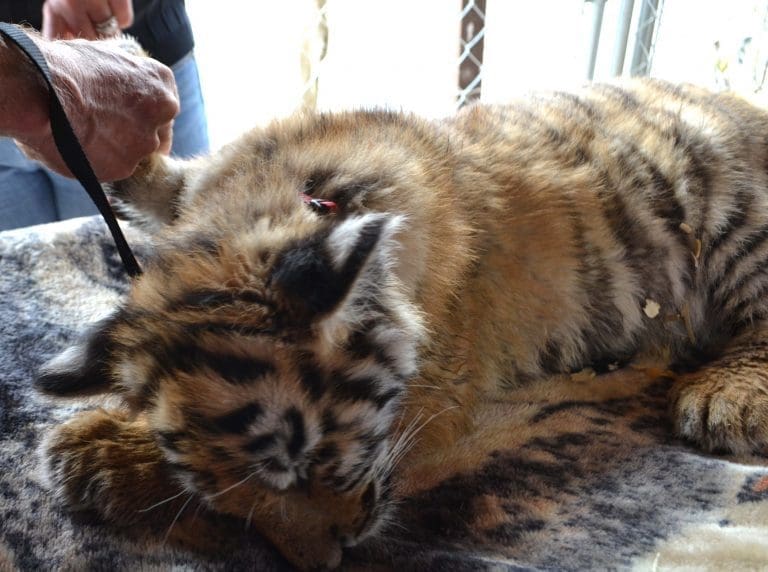
In simple words, the cub petting industry is where tourists pay money to pet and click pictures with newborn Tiger or Lion cubs, baby bears, and other baby animals. For the public, the price is simple: the almighty dollar. But for these big cats, used for the photo props, and therapeutic petting tools, the price is their lives.
In the cub petting industries, baby lions, tigers, and bears are abducted from their mothers right after they are born and thrown into cages where they remain as an amusement to the onlookers. At this crucial time, when for an infant, a mother’s love and care is needed to be happy, healthy, and nurtured, instead of experiencing the natural habitat, the bond between them and their mothers, and getting the protection they deserve, the cubs born in this industry, are passed from stranger human to another.
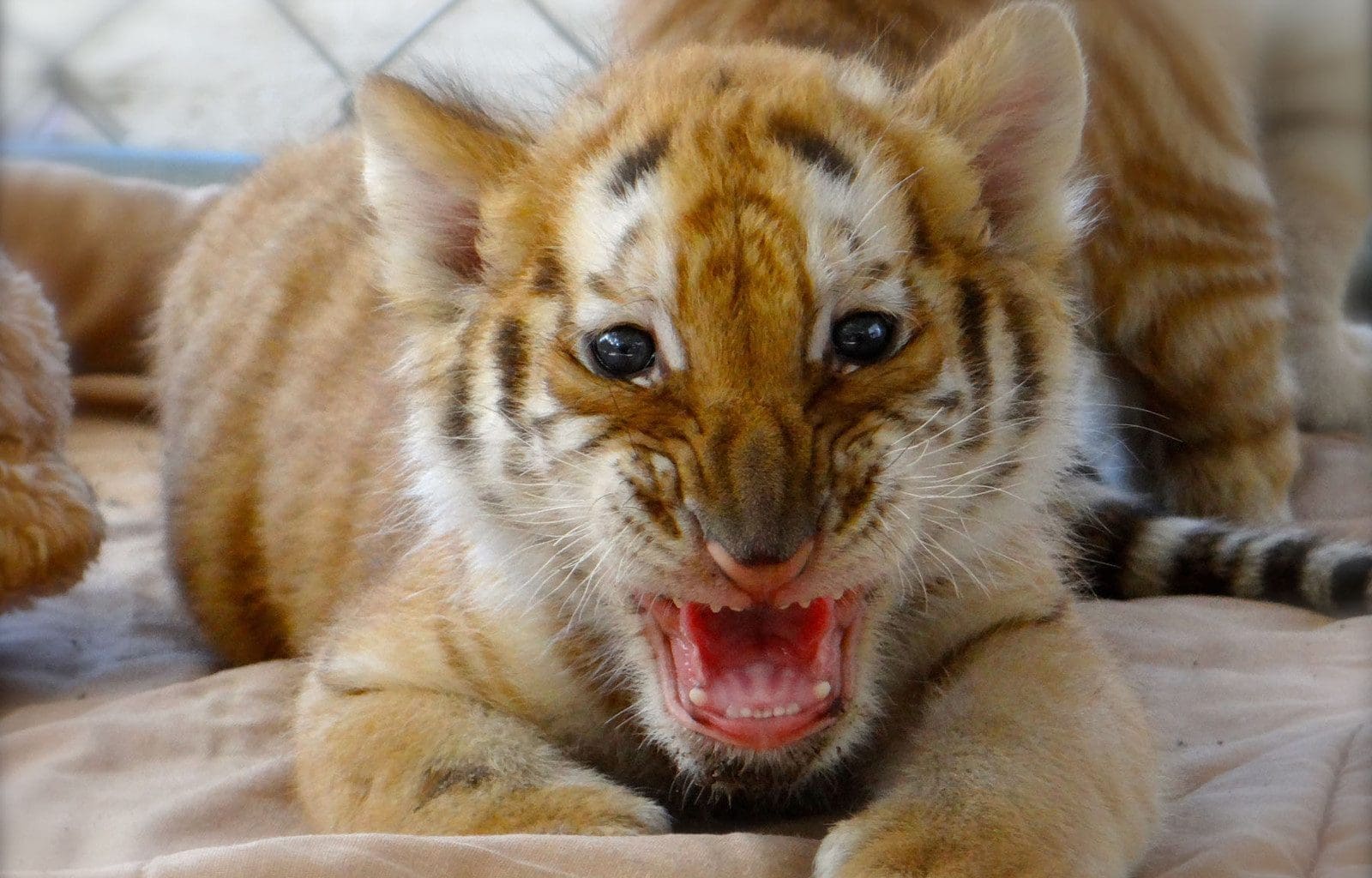
This ‘passing the cub’ game goes on for hours, with no rest for the infant, robbing these helpless, exhausted newborns of their crucial time needed to grow, sleep, and gain energy. This is a traumatic experience for these infants, forced to live without their primary support system: their mothers, and thrust into a new, unfamiliar location.
They are often suffocated, abused, and silently tortured. The cubs are often screaming, or even urinating in terror, while they are treated as nothing but toys by humans.
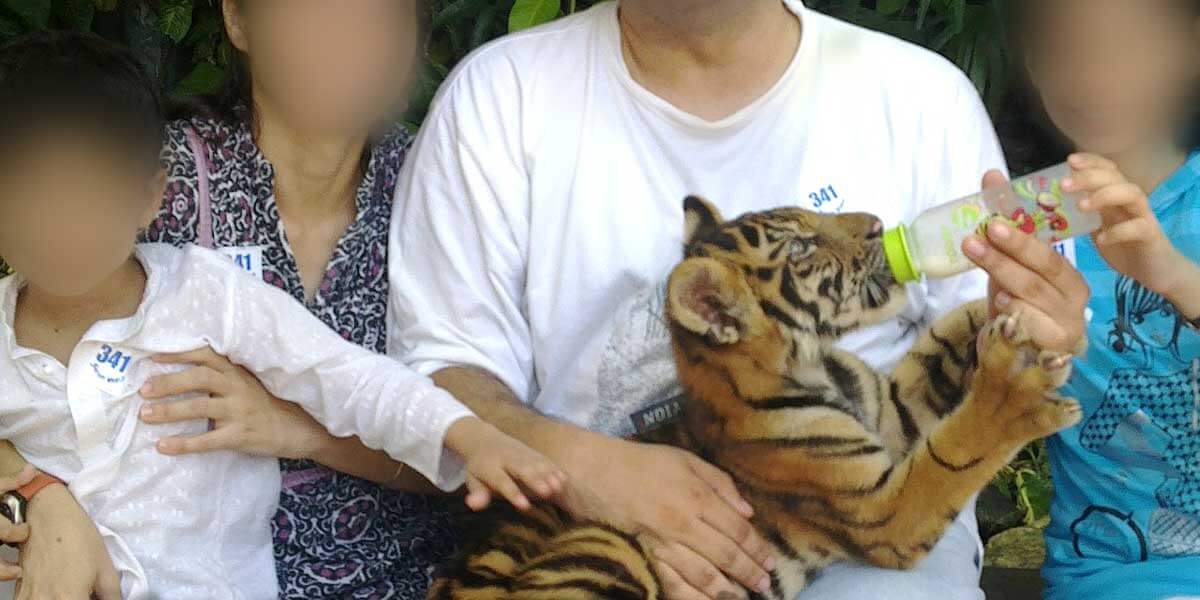
Removed as infants, these newborns are fed from bottles, often leading to malnutrition and even diseases like ‘Metabolic Bone Disease’ (MBD) – where bones become weak and breakable due to insufficient calcium in the diet. The newborns suffer from dehydration, physical and psychological stress, when the immature immune system may catch conditions like Canine Distemper Virus (CDV), known to be lethal to the big cats.
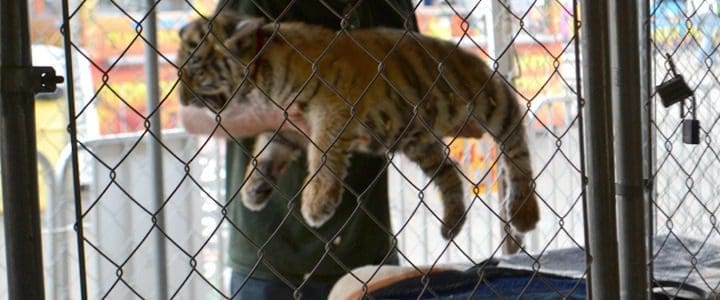
The worst part is, these cubs are used and abused for the business only for four weeks when they are small and manageable. Once they get large and aggressive, they are tossed into roadside zoos or black pet markets or even euthanized. Some are just used as breeding machines.
The mothers are devastated
Like human mothers, these animals also have feelings, love, and unimaginable affection towards their babies. They are simply devastated when only after hours of birth, their babies are snatched away from them. In the wild, the mothers stay with their cubs constantly for as long as three years, taking care of them and their needs. The babies need and want this care.
But in contrast, in cub petting industries, mothers are often used as breeding machines, and also forced into cross-breeding, to produce hybrids. This phenomenon is called ‘Speed-breeding’ and can often lead to draining the mother of her physical and emotional strength.
Both the mothers and cubs are declawed and defanged in order to ensure safety for the tourists, and due to improper care, they are most likely to develop arthritis and several other health challenges in the later years of their lives. Not to mention, the permanent mental scars they are made to bear because of the extreme trauma.
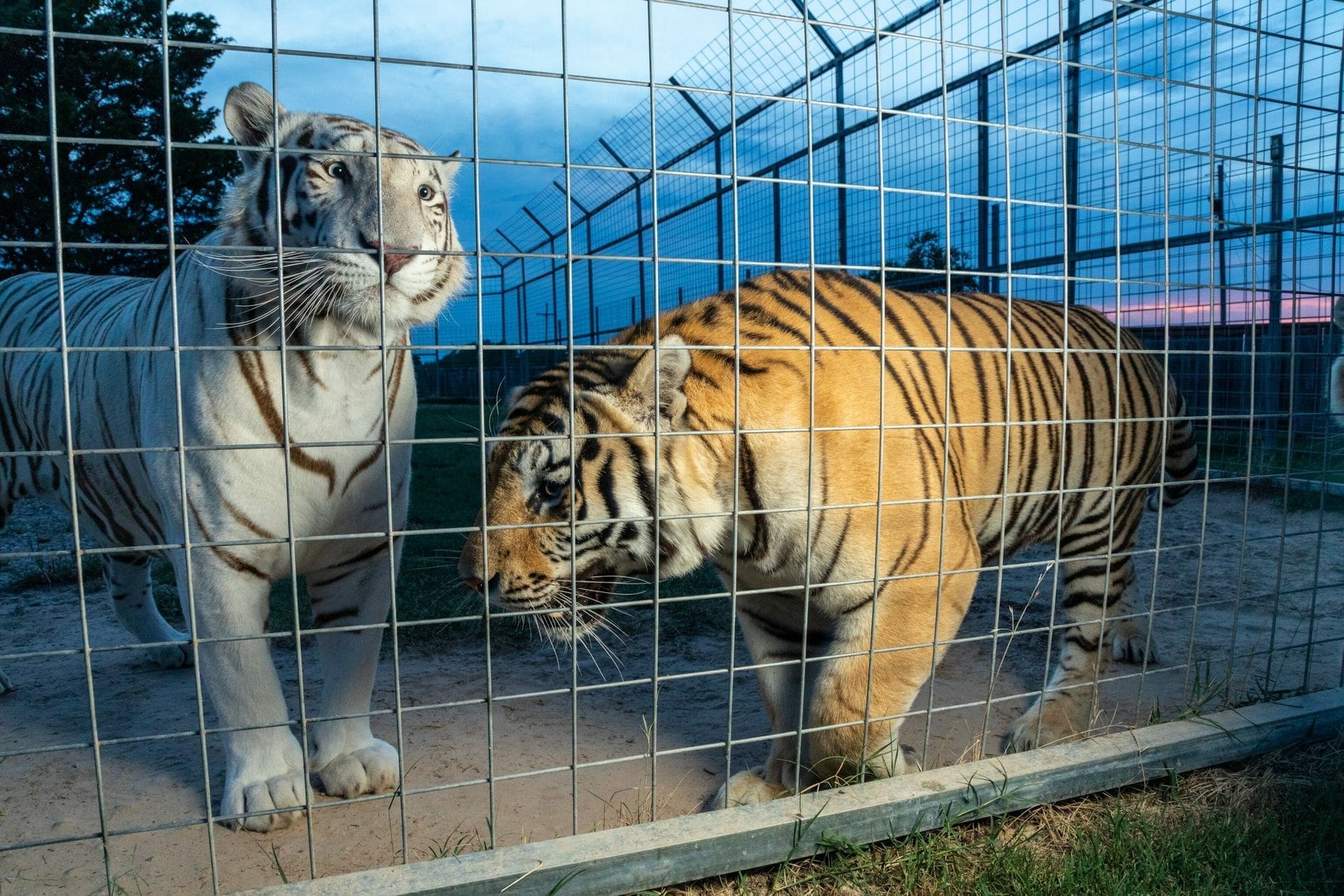
A way to prevent cub petting?
Unfortunately, Cub petting is not illegal in the US, and other western countries. IFAW or International Fund for Animal Welfare is trying their way to make the government close the loophole and make it illegal for the public to pet these babies aged between eight to twelve weeks.
And while this practice may not be that common in the East, it is always good to be aware of these transgressions going on, because for now, public education and awareness are the only means to hope in stopping these industries. If people understand that their innocent plea of cuddling with these infants may lead to such adverse effects for these animals, it can be made sure that this wicked industry won’t last long.
So, next time you want to show your affection and love towards any animal, make sure not to go to any roadside zoos or photo ops; instead, genuinely try to conserve them, and protect them in a sanctuary, where these beautiful animals can get the care and nourishment they deserve.


Be the first to comment